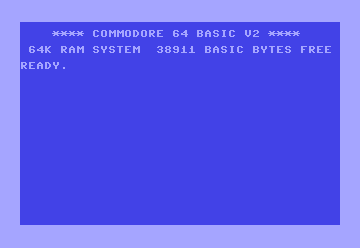
LET: The (Sometimes) Silent Assigner
Ever wondered how to give your Commodore 64 variables their values? You might have stumbled upon the LET command, but here's the twist: In Commodore 64 BASIC v2, it's like a ninja – often working behind the scenes without you even noticing! While technically optional, understanding LET can deepen your grasp of BASIC fundamentals and help when dealing with older code.
Syntax
LET <variable> = <expression>
or simply
<variable> = <expression>
Where:
- <variable>: The name of the variable you want to assign a value to.
- <expression>: The value or calculation you want to assign to the variable.
The Stealthy Side of LET
In Commodore 64 BASIC v2, you can often skip the word LET altogether. The following lines are functionally equivalent:
10 LET X = 5
20 X = 5
30 PRINT X
Both assign the value 5 to the variable X. So why even bother with LET?
When LET Steps Out of the Shadows
While LET is mostly optional, there are a few cases where it becomes necessary:
- Compatibility with older BASIC versions: Some earlier BASIC dialects required
LETfor variable assignment. So, if you're working with vintage code, you might encounter it. - Enhanced readability (for some): Some programmers prefer using
LETfor clarity, explicitly signaling that a value is being assigned.
Code Examples
1. Classic Assignment with LET:
10 LET A = 10 :rem Assign 10 to variable A
20 LET B$ = "Hi" :rem Assign "Hi" to string variable B$
30 PRINT A, B$
2. Assignment Without LET:
10 LET A = 10 :rem Assign 10 to variable A
20 LET B$ = "Hi" :rem Assign "Hi" to string variable B$
30 C = A + 5 :rem Calculate A + 5 and assign it to C
40 D$ = "Hello " + B$ :rem Concatenate "Hello" and B$ and assign to D$
50 PRINT C, D$
LET in the Wild: The Historical Programmer
Imagine you've unearthed a dusty box of Commodore 64 floppy disks filled with old programs. As you explore these retro treasures, you'll likely encounter the LET command, reminding you of the roots of BASIC programming.
While LET might not be the most exciting command in Commodore 64 BASIC v2, it's a reminder of the language's evolution. Understanding its role can help you appreciate the nuances of BASIC and become a more well-rounded programmer. So, whether you choose to embrace LET's explicitness or prefer the streamlined approach, remember that it's there, silently working behind the scenes to make your variable assignments happen!
